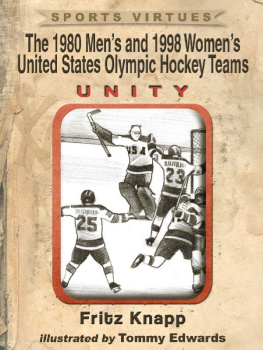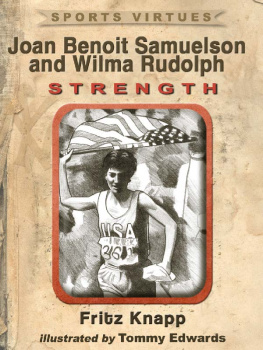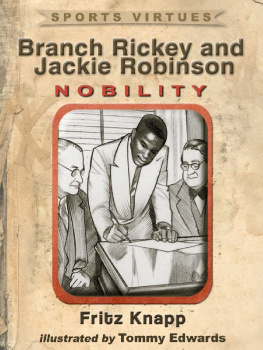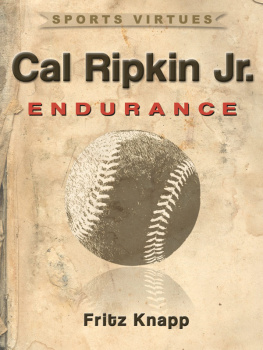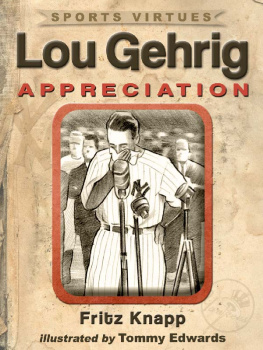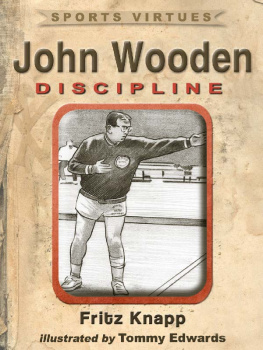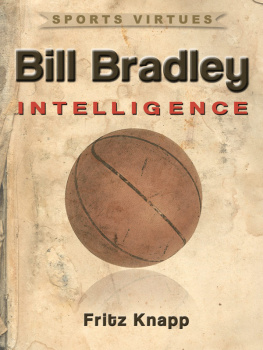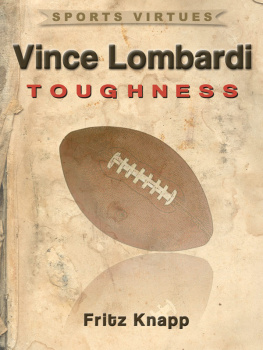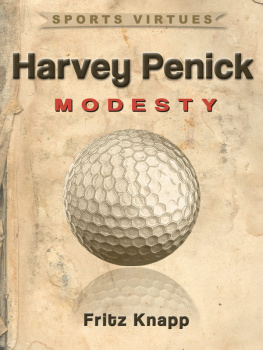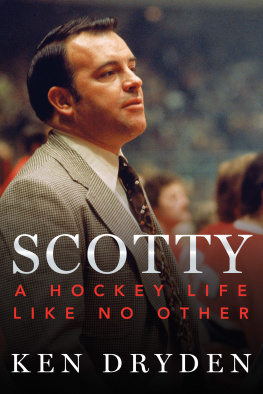Price World Publishing
www.PriceWorldPublishing.com
Scripture quotations are from the New Revised Standard Version Bible, copyright 1989 by the Division of Christian Education of the National Council of the Churches of Christ in the USA. Used by permission.
Copyright 2012 by Fritz Knapp
All rights reserved. Neither this book, nor any parts within it may be sold or reproduced in any form without permission.
Illustrations by Tom Edwards
Edited by Michael Wilt
eISBN: 9781619840461
Introduction
Their nicknames often seem to point to triumph: The Iron Horse, Captain Clutch, The Dominator, Mr. October, The Rocket, The Sultan of Swat, Air Jordan, Dr. J. But the true stories of many sports stars are much like those of any other human being. We all must, at some time or another, work and strive to overcome trouble, problems and hardship. Most of us do so on a smaller stageno lights, cameras, announcers, or postgame interviews. But there is much we can learn about how to live our own lives by studying the stories of great athletes who have overcome hard times and adversity.
The main characters in this series are well-known athletes and sports figures, men and women who have overcome personal misfortune through strength of character. Their stories inspire greatness in others. About ten years ago, I began to study athletes and the qualities that made them great. I was interested in more than their athletic abilities, impressive as those are in individuals who have made it to the top of their games. I was especially interested in their life abilities, the way they dealt with the variety of setbacks and struggles that all human beings encounter. In my study I read sports biographies by the dozens, and not just those of the most recent superstars. My reading took me as far back as the late 1800s. I found truly captivating accounts of athletes whose attitudes in their weak moments gave them more enduring legacies than they ever would have earned in athletic competition alone. As I entered some difficult personal times, these athletes became my friends and gave me a sense of hope that the struggles in my life would ultimately make me a stronger person.
I can personally identify with each athlete in this series. There is a part of me in every one of their stories. I have battled fatigue, failure and depression like U.S. Open golf champion Ken Venturi. I have had speech difficulties and low confidence like Amos Alonzo Stagg. My body has failed me at different times, as Gertrude Ederles and Lou Gehrigs bodies failed them. Despite lifes downside, though, I have been blessed with a source of strength that comes from deep within my soul and is a well-spring of incredible peace. This well has been fed, in part, by knowing otherssome personally and some through their storieswho fought hard to overcome their difficulties. My spirit has risen in the midst of trials, like an eagle in a storm soaring high above the mountains. But it is the Spirit that can turn tragedy into triumph, despair into hope, and defeat into victory. While the crises of life rage, Gods abundant grace is most present.
Each story in this series identifies a key personality trait demonstrated by a great athlete or sports figure in his or her struggle against adversity. Here you will read, for example, of the compassion of Gale Sayers and Brian Piccolo; the integrity of Arthur Ashe; the persistence of Althea Gibson; the wisdom of Happy Chandler. Through these and other stories, I hope you will find inspiration and a few new friends to help you along lifes journey. Get to know these people and you too will hear the lessons they teach. Let them be your mentors. Bring to your life the virtues described in these stories, and bring your own story into clearer perspective. Be true to who God made youa shining star in a dimming world. As St. Paul wrote, Adversity produces character, and character produces hope, and hope will not disappoint. Let adversity help turn you into the successful person God has created you to bea person of hope, a person of character.
UNITY
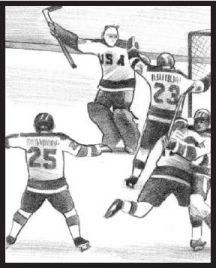
The 1980 Mens and 1998 Womens
United States Olympic Hockey Teams
| UNITY: The state of being one. |
T he Olympic Games are famous for athletes who achieve individual sports notoriety, such as Americans Jesse Owens (1936, track and field), Eric Heiden (1980, speed skating), and Picabo Street (1996, skiing). But memories of the Winter Games in 1980 and 1998 are dominated by thoughts of team successes. At those games, two American ice hockey teams accomplished the impossible. Both teams were underdogs going into their respective Games, with less experience than their strong international competition. Their teamwork, however, marked by a high degree of selflessness, made each group of players into a powerful unit. In 1980, Americas men made sports history in a victory that has been dubbed The Miracle on Ice. Then, in 1998, American women took center stage. Both teams exemplified the virtue of unity and the character it can produce.

The Olympic Games in ancient Greece were primarily tests of individual strength, stamina and fitness. Events included foot racing, wrestling and the pentathlon, a series of five track and field events. Since 1896, when the modern Olympic era began, the Games have kept much of the original flavor of head-to-head athleticism, but with the added dimension of team competition. Nations around the world compete against one another in team sports such as volleyball and basketball in the Summer Games, and bobsledding and ice hockey in the Winter Games. Countries put their best athletes together on national teams to vie for medals. National, as well as athletic, pride is at stake in team competition, and intense rivalries have developed over the years. One such rivalry was that of the United States versus the Soviet Union. In any sport these in which these countries contended, an electric atmosphere pervaded each nation as well as a world wide audience.
The 1980 Winter Games in Lake Placid, New York, took place during the high point of the Cold War between the United States and the Soviet Union. The relationship between the worlds two superpowers was hostile and icy, so much so that the United States boycotted the Summer Games in Moscow that same year to protest the invasion of Afghanistan by the Soviet Union. But in the Winter Games, the competitive edge favored the Soviets, especially in sports such as figure skating and ice hockey. They had dominated international ice hockey since 1960 and won gold medals in four straight Olympics. Their team was always fast, tough, and well-coached, using marksman-like passing and adept teamwork to demolish opponents. They practiced year-round, and their roster consisted of Russias best players, whose full-time job was to win hockey games around the world. They were a team of international ice hockey veterans chiseled into the Soviet mold of iron-fisted dominance.
The formation of the U.S. team took place in a way that contrasted greatly with the Soviet method. About seven months before the 1980 Winter Games, a no-nonsense collegiate hockey coach from Minnesota named Herb Brooks began the United States team selection process. Sixty-eight players, mostly collegiate stars from the Northeast and Mid-west, were invited to try out, knowing only twenty-six would survive the cut. The grueling tryouts lasted for sixty exhibition games and ended only two weeks before the Olympic Games began. The average age of the final teams players, twenty-two, made it one of the worlds least experienced international sports units. Consequently, Olympic organizers seeded them seventh in an eight-team field.
Next page
